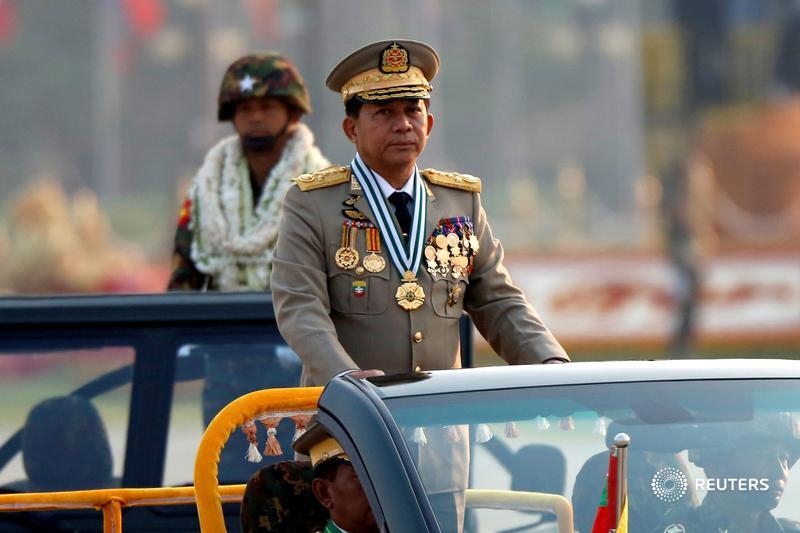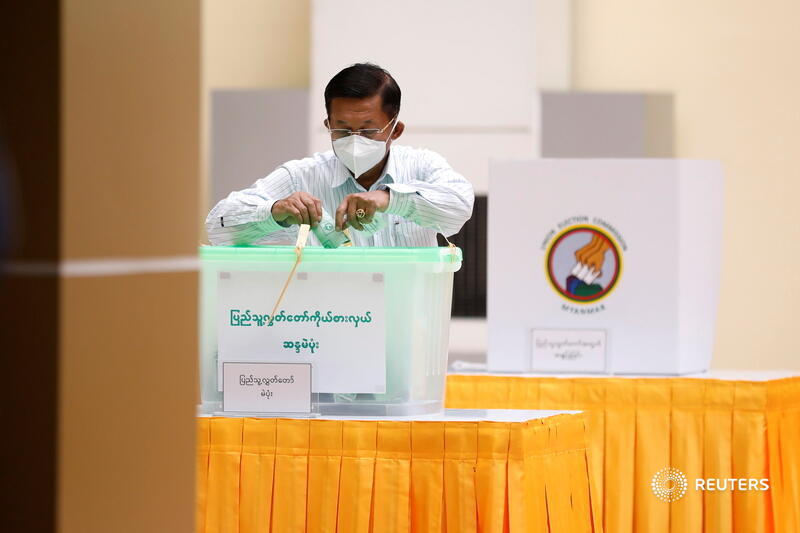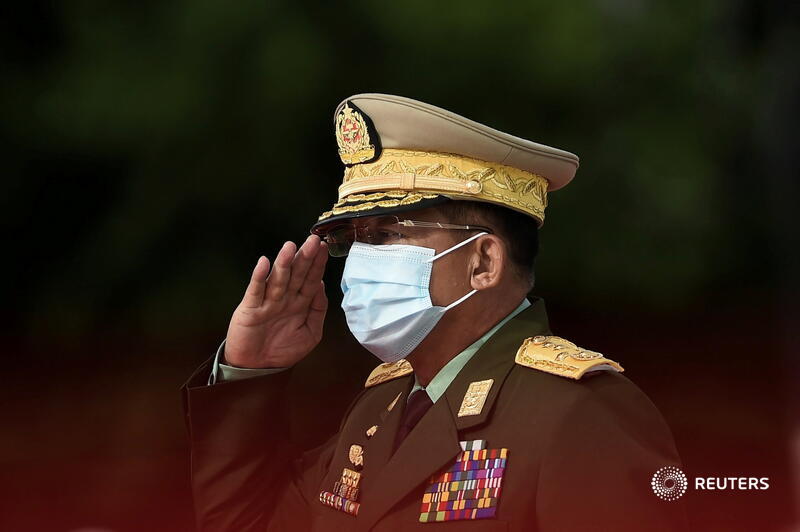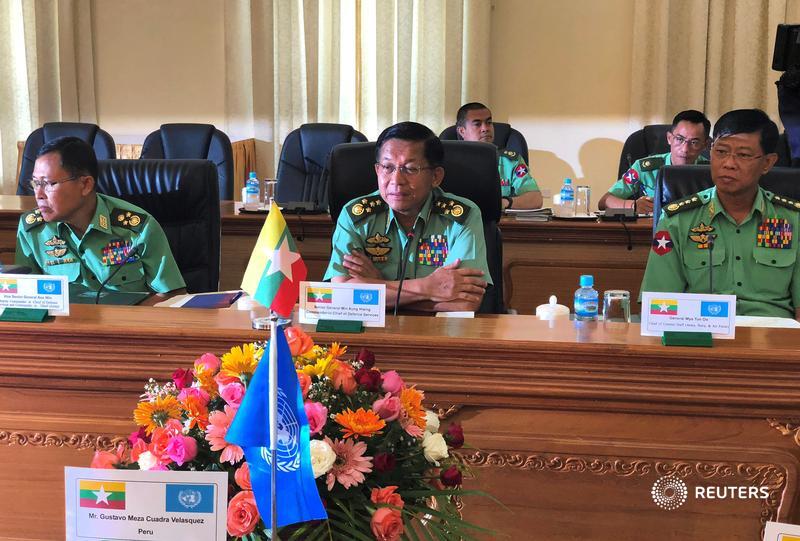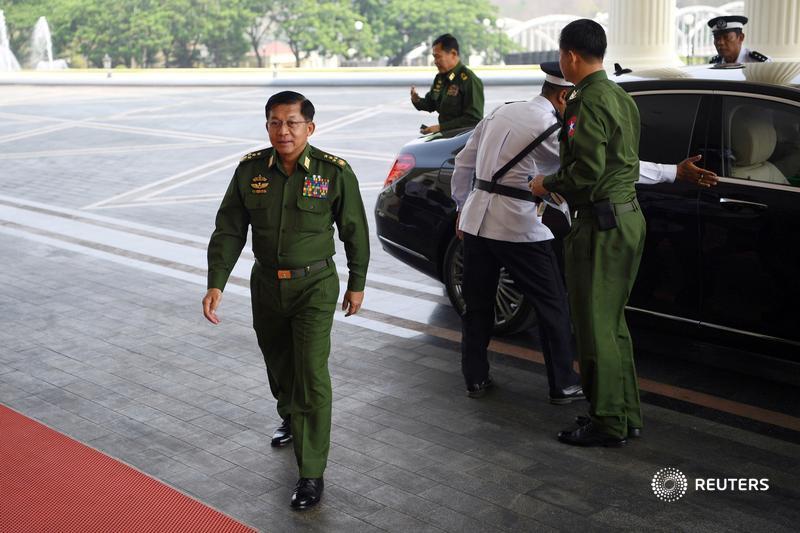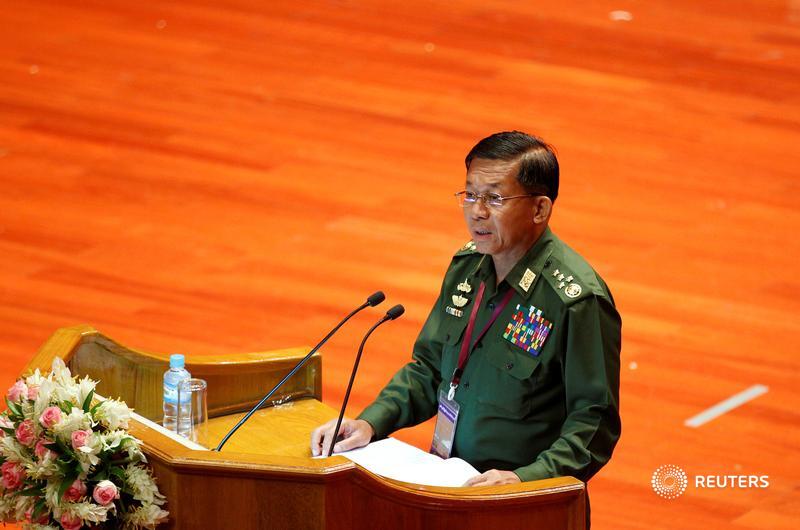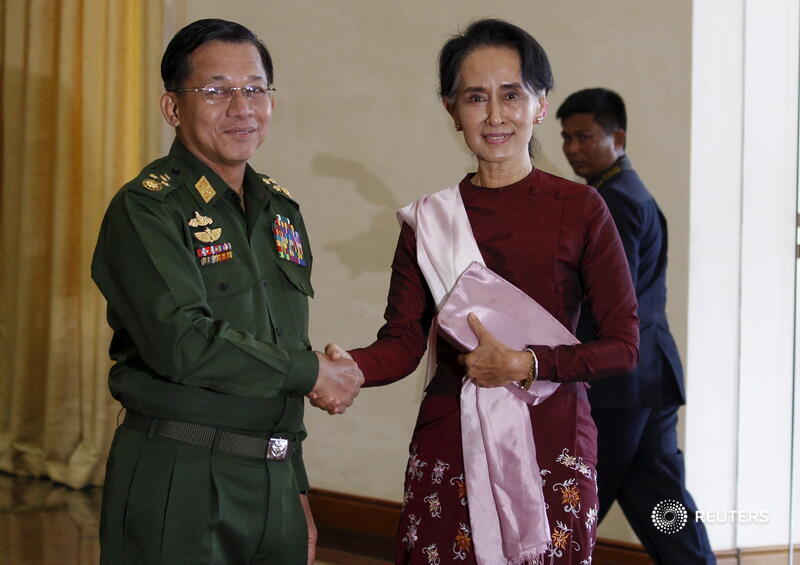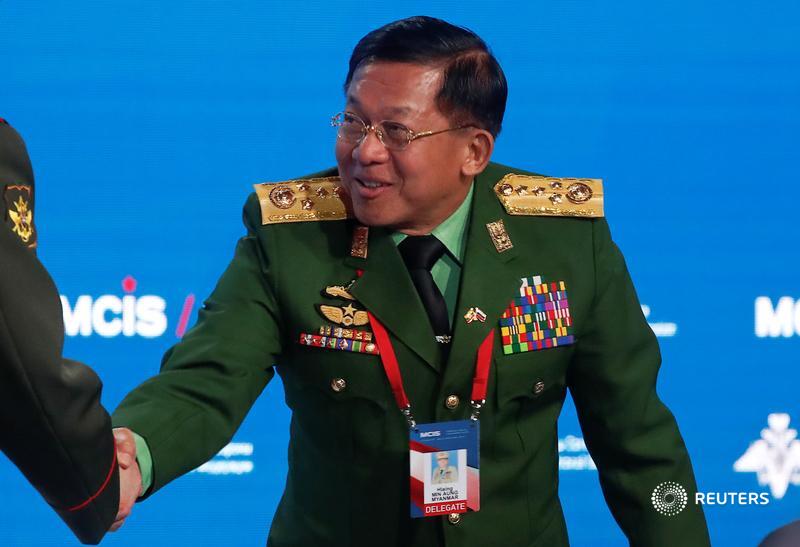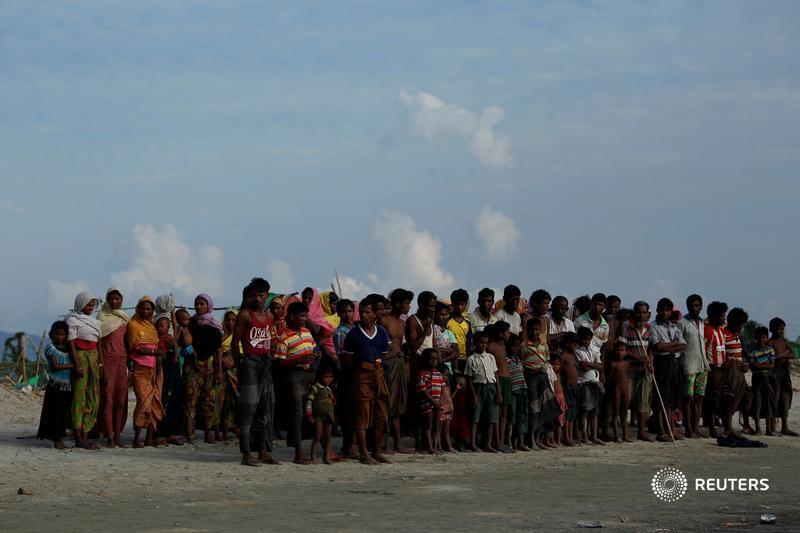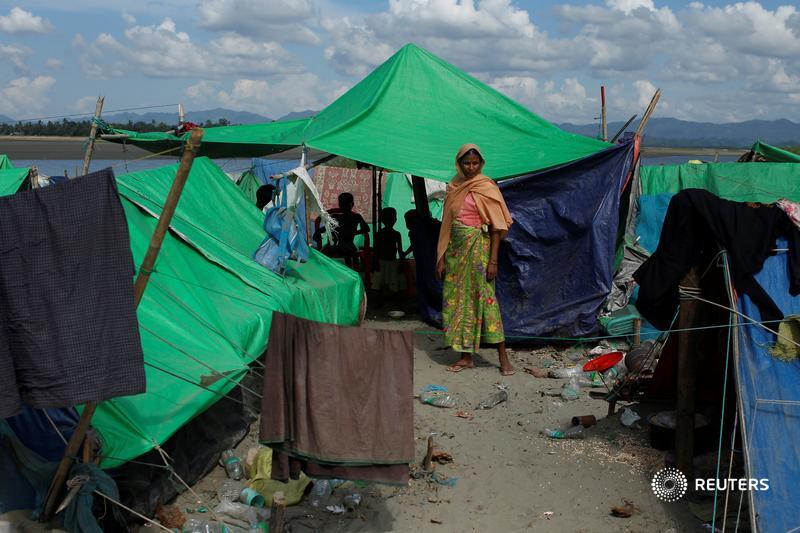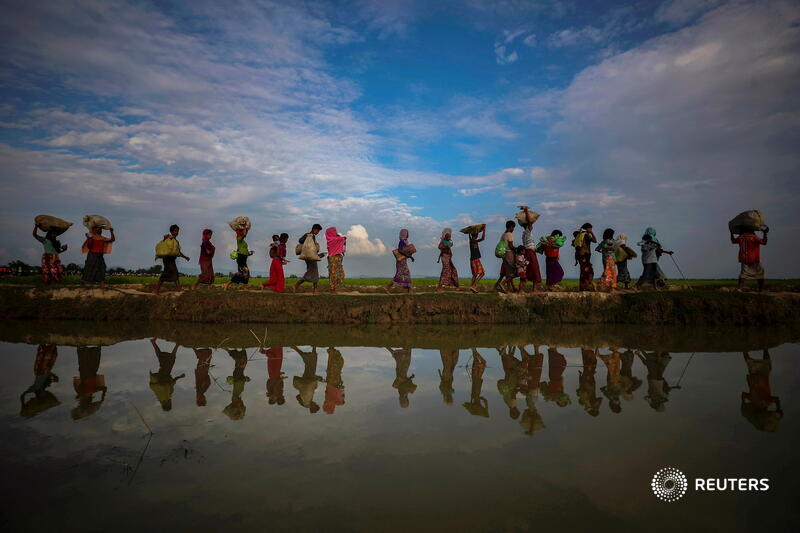Myanmar’s powerful military chief, Senior General Min Aung Hlaing, is in the spotlight after politicians from the ruling National League for Democracy party were detained and the army announced it was taking power https://reut.rs/2Mqe7AO
Myanmar’s military is notoriously reclusive and even sophisticated observers know little about its inner workings. Here are some key facts about its leader and the army’s enduring role in the political system 

Military's role in politics:
The military ruled directly for nearly 50 years after a 1962 coup and had long seen itself as the guardian of national unity. As the architect of Myanmar’s 2008 constitution, the military enshrined a permanent role for itself in the political system
The military ruled directly for nearly 50 years after a 1962 coup and had long seen itself as the guardian of national unity. As the architect of Myanmar’s 2008 constitution, the military enshrined a permanent role for itself in the political system
It gets an unelected quota of 25% of parliamentary seats and its chief appoints ministers of defense, interior and border affairs, ensuring a key stake in politics, which has made for an awkward power-sharing arrangement with the NLD
Slow and steady rise:
Min Aung Hlaing, 64, steered clear of the political activism that was widespread at the time when he studied law at Yangon University in 1972-1974. 'He was a man of few words and normally kept a low profile,' one classmate told @Reuters in 2016
Min Aung Hlaing, 64, steered clear of the political activism that was widespread at the time when he studied law at Yangon University in 1972-1974. 'He was a man of few words and normally kept a low profile,' one classmate told @Reuters in 2016
While fellow students joined demonstrations, Min Aung Hlaing made annual applications to join the premier military university, the Defense Services Academy, succeeding on his third attempt in 1974
From soldier to politician:
Min Aung Hlaing took over the running of the military in 2011 as a transition to democracy began. Diplomats in Yangon said by the onset of Suu Kyi’s first term in 2016, Min Aung Hlaing had transformed himself from taciturn soldier into a politician
Min Aung Hlaing took over the running of the military in 2011 as a transition to democracy began. Diplomats in Yangon said by the onset of Suu Kyi’s first term in 2016, Min Aung Hlaing had transformed himself from taciturn soldier into a politician
Observers noted his use of Facebook to publicize meetings with dignitaries and visits to monasteries.
His official profile attracted hundreds of thousands of followers before being taken down in the wake of the army’s offensive against the Rohingya Muslim minority in 2017
His official profile attracted hundreds of thousands of followers before being taken down in the wake of the army’s offensive against the Rohingya Muslim minority in 2017
Sanctions:
A 2017 military crackdown in Myanmar drove more than 730,000 Rohingya Muslims into neighboring Bangladesh.
U.N. investigators have said Myanmar’s military operation included mass killings, gang rapes and widespread arson and was executed with 'genocidal intent'
A 2017 military crackdown in Myanmar drove more than 730,000 Rohingya Muslims into neighboring Bangladesh.
U.N. investigators have said Myanmar’s military operation included mass killings, gang rapes and widespread arson and was executed with 'genocidal intent'
In response, the United States imposed sanctions on Min Aung Hlaing and three other military leaders in 2019 and several court cases in various international courts, including the International Court of Justice, are going on https://reut.rs/2Mqe7AO

 Read on Twitter
Read on Twitter